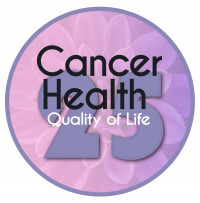The Cancer Health 25 is an annual list that honors individuals who have made a difference in the lives of people with cancer. This year’s theme is quality of life. To see the full list, click here.

Since completing a fellowship in hospice and palliative medicine at Beth Israel Medical Center in New York City in the mid-2000s, Craig D. Blinderman, MD, 47, has been advocating for integrating palliative care into a patient’s regular cancer treatment early on. Following his fellowship, he became a doctor of palliative care services at Massachusetts General Hospital in Boston and since 2010 has been the director of the adult palliative care service at Columbia University Medical Center/New York–Presbyterian Hospital in New York City.
Long misunderstood by patients and providers as focusing solely on end-of-life care, at its heart, palliative care adds another layer of support for patients and their families by helping to manage pain and other debilitating symptoms as well as alleviate suffering due to chronic disease, including cancer at any stage.
The benefits include better symptom control, less anxiety and depression and even an increase in survival rates. In fact, that was the result of a groundbreaking study on lung cancer patients that Blinderman coauthored in 2010. When introduced early on, palliative care gave lung cancer patients not only better quality of life but a longer life too.
The key to palliative care, as Blinderman told NPR, is to identify the patient’s underlying goals and values and try to meet them in the best way possible. That means really listening to what patients want and need with curiosity and an open mind. It requires making an effort to pick up on a patient’s nonverbal communication—the facial expression, the emotions, the anger and fear—and not adding to a person’s suffering by causing anxiety or shame.
This is one reason why Blinderman believes the principles of Buddhism—being self-aware, listening to others and being present in the moment—can help doctors practice better medicine. As he said in a TEDMED lecture, the key is paying attention to what’s most important to patients and their families, which often includes having a sense of control over the path of their illness. It’s no accident that Blinderman teaches and serves on the advisory board at the New York Zen Center in New York City.
Blinderman has published a range of articles, reviews and chapters on palliative and end-of-life care, including on the topics of comfort care for the dying patient and the role of palliative care for heart failure and COVID-19 patients. He’s educating the next generation of palliative care by directing Life at the End of Life: Palliative Care and Service, an undergraduate course at Columbia University’s American Studies department, as well as serving as the program director of the Bi-Campus (Columbia and Cornell) Hospice and Palliative Medicine Fellowship at New York Presbyterian.







Comments
Comments